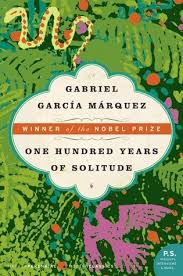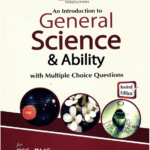Description
Tuesdays with Morrie” is a memoir by Mitch Albom. First published in 1997, it tells the story of a series of conversations Mitch Albom holds with his former college professor, Morrie Schwartz, who was suffering from amyotrophic lateral sclerosis (ALS) when he died. It explores love, life, death, and other pivotal lessons that can be received in the face of mortality.
Summary
Plot Summary:
The book opens with the author in a narration of how he reflected on his life after college. For once, he was buddies with Morrie, but he lost his buddy when they graduated from Brandeis University. Fifteen years down the road when Mitch watched on television an interview of his once-partnered professor Morrie by Barbara Walters about his condition in the later stages of the lethal ALS, Mitch was encouraged to reconnect with his prof.
Agreeing to meet every Tuesday, Mitch starts visiting Morrie at his home. This culminates into a series of impressive lectures on various aspects of life such as love, work, family, growing old and eventually death. More worldly wisdom and lessons for life are imparted in these sessions, goading Mitch to think deeply about himself and the priorities he has in life.
When it comes to Morrie, such conversations are even more poignant as his health has declined. The reader follows the transformation of a mentor/student relationship into a close friendship characterized by mutual respect and affection.
Throughout their experience together, Morrie shares much about accepting life, accepting death, and the power of human relationships. Each chapter builds on a specific topic: Morrie’s final two cover dying and what makes a legacy.
2. Themes:
The Meaning of Life: This is a life memoir and what it takes to live life substantially, and what Morrie emphasizes is love, compassion, and love in relationships, not success achieved at any cost.
Death and Dying: Acceptance of death as a part of life is a major theme. Morrie writes about how, while coming to terms with death, one develops more appreciation for life and comes to realize what really does count.
Love and Relationships: Morrie believes family and friends must be cultivated into relationships. He shows that love is a foundation for a true life, since real relationships are what give life its substance.
Regret and Reflection: The memoir provokes reflection about the reader’s own life and what really matters. It warns readers to avoid being automatons, but to be authentic in one’s actions.
3. Character Development:
Morrie Schwartz: This is a paradigm mentor possessing wisdom and compassion, who aptly accepts his disease, depicts humor about it, and makes it a beacon for the path in this memoir. He comes out as somebody vulnerable with insight into life and death. He becomes a symbol of real living and pertinent resilience.
Mitch Albom: Mitch is a successful sportswriter when he begins this memoir. However, the influence of Morrie keeps changing Mitch’s individualism. He learns to revise his sense of priorities and finally discovers that one needs love and good relationships more than success in one’s career life.
4. Style and Tone:
Conversational and Accessible: The writing is rather simple and conversational in nature, which denotes the texture of the dialogues between Mitch and Morrie. Such accessibility enables the readers to go deeper into understanding the themes and lessons offered in the memoir.
Emotionally and Reflective: The tone of the memoir reveals aspects of both heart and reflection through the reader’s consideration of his/her life and relationships. Mitch’s emotional journey while coming to terms with Morrie’s death offers substance to the narrative.
Conclusion
“Tuesdays with Morrie” is a poignant memoir that captures the great wisdom of a much-loved teacher and highlights the life to be lived in full of love, compassion, and meaningful bonds. Reviews of Mitch Albom and Morrie Schwartz’s weekly discussion over life lessons elicit a reader’s introspection and challenges him to live life to the fullest and face the inevitability of death. Precisely because the book appeals to everyone, some have been discussing its universality and how such learning influenced one’s life and relationship.










Reviews
There are no reviews yet.